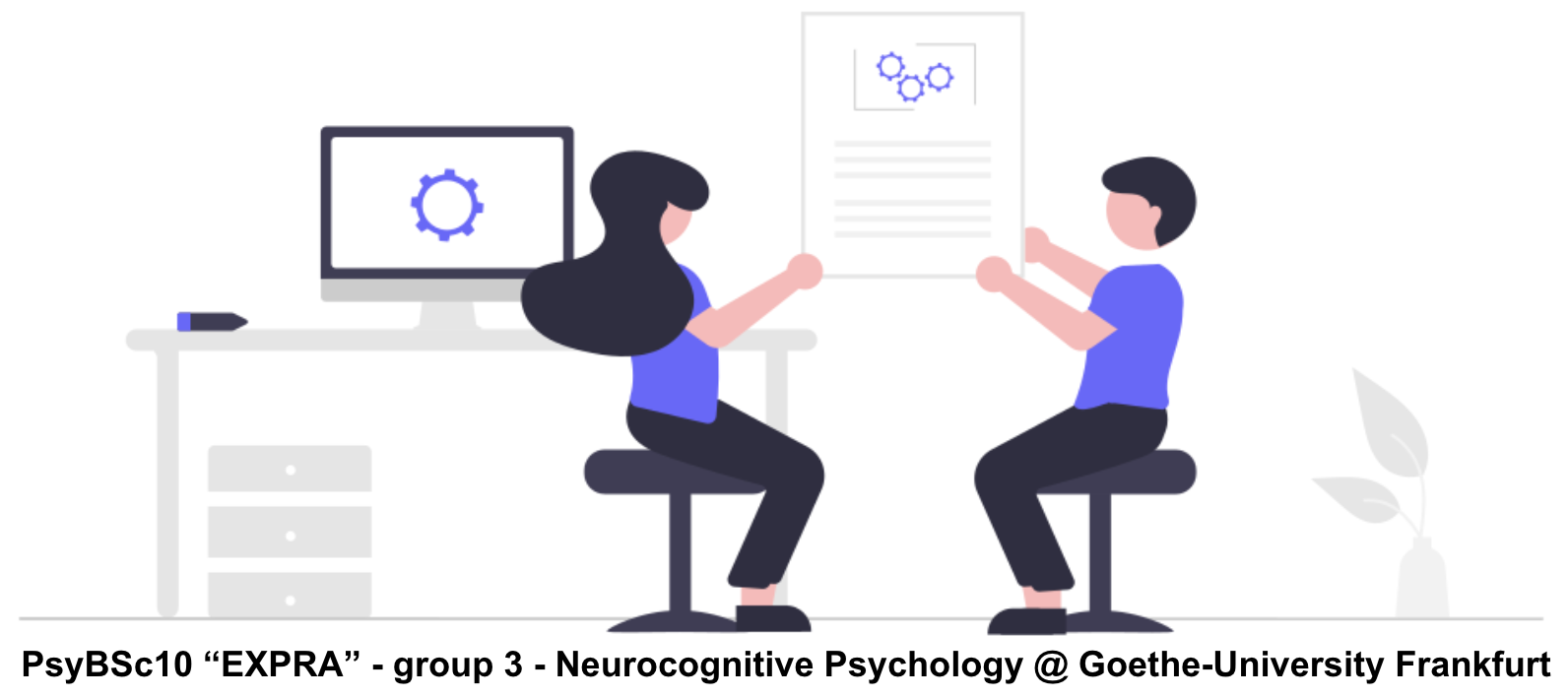Introduction II
Contents
Introduction II¶
Within the second session we’ll spend a fair amount of time on talking about project & data management as the necessary prerequisite for any successful research work, specifically with a focus on open & reproducible science as well as FAIR principles. Additionally, we’ll have a shorter session on the demo experiment where we will gather your impressions & feedback and furthermore talk about the background, idea & aim of it.
Topics 💡👨🏻🏫¶
In the following you’ll find the objectives and materials for each of the topics we’ll discuss during this session.
Project & data management¶
As said last session: research is hard and super complex. However, it’s worse without clear outlines, documentation and standardization. What are important steps of the research process & how should they be documented? At what point do I need think about incorporating open & reproducible science? Are there tools & resources I can use? All these and more questions will be addressed in this session.
Objectives📍¶
learn about aspects of project & data management
get to know respective tools & resources
Ask and answer questions
Have a great time
Information about the demo experiment¶
After taking part in it, it’s finally time you learn more about the demo experiment. This will entail, some background information about the research field we will be working in, i.e. music/auditory cognition, the paradigm we will be using and the aim of the demo experiment.
Objectives📍¶
review of the demo experiment
learn about the demo experiment
form demo experiment groups
Ask and answer questions
Have a great time
tasks for subsequent meeting 🖥️✍🏽📖¶
Below you’ll find the tasks you should spend a look at for next week’s session.
check demo experiment literature¶
Please go through the articles relevant for the demo experiment which are collected in the respective zotero group. It’s not that crucial to go through everything in detail and you can definitely skip the in-depth math parts. The basic idea is to provide you with more context about the framework and idea, as well as a starting point for your own library. However, it would be important to at least go through Kriegeskorte & Mur (2021) and Kriegeskorte & Kievit (2013) as these publications are central regarding the paradigm we are using.
check literature for scientific reading & writing section¶
In preparation for our scientific reading & writing section, please go briefly through Mensh & Kording (2017).
optional/reading/further materials¶
Regarding our discussion on project & data management, you could watch the “Data management plans in 3 minutes” video below.
The Turing Way & Project TIER¶
Along these lines, you could also check the Turing Way
and Project Tier.
